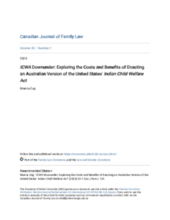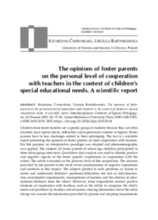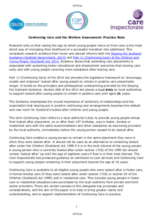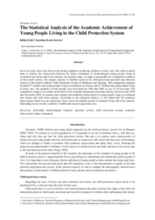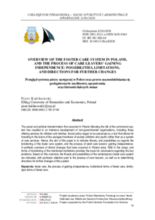Displaying 551 - 560 of 2221
This documentary features China’s first generation of foster children. These young people reveal how they moved on from life in orphanages to achieve success and their foster parents recall their battles to help them overcome prejudice and serious developmental difficulties. The documentary also tells the story of the founding of Care for Children, an organization that has placed almost a million Chinese children from orphanages with local foster families.
This chapter describes a youth-centered approach to transition planning for this vulnerable population and highlights essential elements to consider during the process such as disability, mental health, trauma, resilience, self-determination, culture, and how trauma impacts mental health.
The Center for the Study of Social Policy (CSSP) and the University of Houston Graduate College of Social Work have collaborated to create the upEND movement, a grassroots advocacy network designed to tap into work already being done and spark new work that will ultimately create a society in which the forcible separation of children from their families is no longer an acceptable solution for families in need.
This article from the Canadian Journal of Family Law finds that an Australian version of the Indian Child Welfare Act (ICWA) of the United States is feasible and could significantly reduce Indigenous child removals and the break up of Indigenous families and communities in Australia.
This report presents the opinions of foster parents in Poland on their cooperation with teachers.
These Standards for Foster Care are available to all stakeholders engaged in the protection, care and support of children where foster care provision may be required. These Standards are intended to guide social workers and other service providers in monitoring foster care services.
This Practice Note clarifies the legislative requirements in Scotland when undertaking a Welfare Assessment to support planning for a looked after young person to ‘stay put’ in a care placement under Continuing Care arrangements.
This research aims to explore the connections between the future orientation of disadvantaged young people living in residential care homes and foster families, by a comparative analysis of their study results.
The aim of this paper is to indicate threats and possibilities as regards the functioning of the foster care system and the process of adult care leavers’ gaining independence.
The Pathways of Care Longitudinal Study (POCLS) is the first large-scale prospective longitudinal study of children and young people in out-of-home care (OOHC) in Australia.

